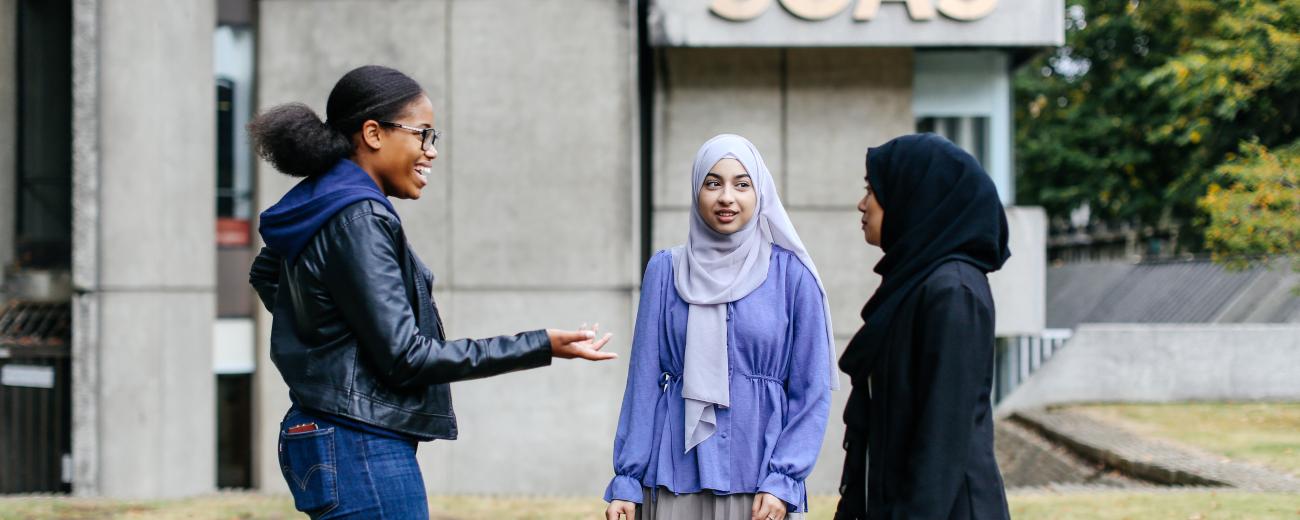Equality chartermarks


Athena SWAN
The Athena SWAN award is a national charter mark that recognises the advancement of gender equality in higher education, encompassing representation, progression, and success for all. SOAS currently holds an institutional Athena SWAN Bronze Award and is renewing its submission.
The transformed Athena Swan Charter Principles support greater inclusivity for people in all roles, of all gender identities, and those facing intersectional inequalities. It also empowers participants to make active commitments in line with their gender equality goals, as well as recognise and reward gender equality work.
The Athena Swan Charter Principles:
- help institutions achieve their gender equality objectives.
- assists institutions to meet equality legislation requirements, as well as the requirements and expectations of some funders and research councils.
- uses a targeted self-assessment framework to support applicants identify areas for positive action as well as recognise and share good practice.
- supports the promotion of inclusive working practices that can increase the retention of valued academics and professional and support staff, demonstrating an institution’s commitment to an equitable working environment.
For more information about Athena Swan at SOAS please contact edi-staffwellbeing@soas.ac.uk.
- Follow our work on Gender Equality at SOAS.
Race Equality Charter
The Race Equality Charter (REC) helps institutions to self-reflect on their make-up, policies and practices and implement a sustainable and impactful action plan aimed at reducing and eliminating systemic and institutional barriers for Black, Asian, and Minority Ethnic staff and students.
The REC is based on five guiding principles:
- Racial inequalities are a significant issue within higher education. Racial inequalities are not necessarily overt, isolated incidents. Racism is an everyday facet of UK society and racial inequalities manifest themselves in everyday situations, processes, and behaviours.
- UK higher education cannot reach its full potential unless it can benefit from the talents of the whole population and until individuals from all ethnic backgrounds can benefit equally from the opportunities it affords.
- In developing solutions to racial inequalities, it is important that they are aimed at achieving long-term institutional culture change, avoiding a deficit model where solutions are aimed at changing the individual.
- Black, Asian, and Minority Ethnic staff and students are not a homogenous group. People from different ethnic backgrounds have different experiences of and outcomes from/within higher education, and that complexity needs to be considered in analysing data and developing actions.
- All individuals have multiple identities, and the intersection of those different identities should be considered wherever possible.
SOAS will apply for its first bronze award by 2025.
- Follow our work on Race Equity at SOAS.